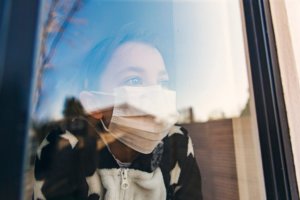Responding to Children’s Mental Health Needs – Parents Need Support Too


By Executive Director Barbra Silver
August 11, 2020
According to doctors across the county, concerns are rising about the impact of the pandemic and the increase in family stress on children’s mental health.
As discussed in a recent New York Times article, “Dr. Maya Haasz, an attending physician in the pediatric emergency room at Children’s Hospital Colorado and an assistant professor at University of Colorado School of Medicine, brought up the vulnerability of children who already had mental health concerns, especially depression and anxiety, and emphasized the need for parents to ask children about their moods, mental health and low moments.”
With many children in our community also seeing their parents lose jobs, face possible eviction, cope with food insecurity, navigate the risks of COVID infections and deal with the effects of systemic racism, we need to be more aware than ever about how we will respond to the shifting emotional needs of children.
However, we cannot fully address children’s mental health needs without addressing the corresponding increase in parenting stress. As a society, we often leave parents to their own devices to “figure things out” and assume that personal support is readily available. That is not always the case, and especially now, with more social isolation or the support network that might have previously existed being impacted by similar systemic stresses.
Creating more opportunities for parents to talk about their own stress and find tools to manage it will also benefit children. If you are in a parenting role with a child and facing your own increase in stress and not sure what to do, please reach out for help. In Alameda County, Family Paths is here for you and your child to support you through this very challenging time.
Call our free and confidential Parenting Stress Helpline at 1-800-829-3777. Not only will you get the support you need, but you can connect to important mental health services for your child. Reaching out is the first step. We are here for you.
You can read the full NYT article HERE.